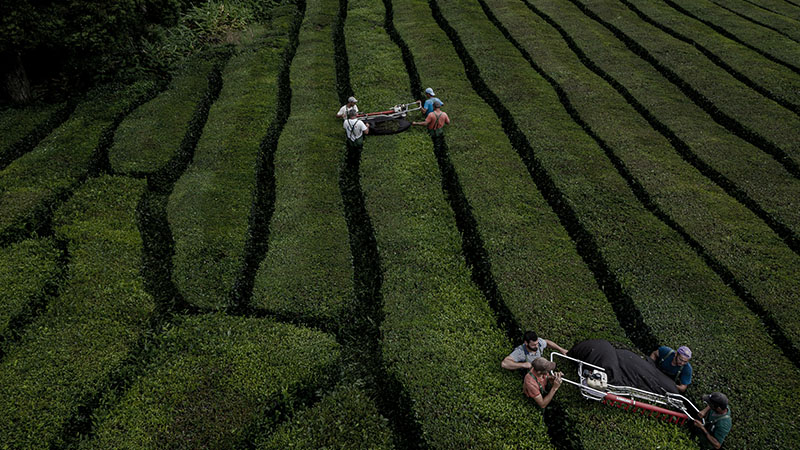With cafes on every corner serving some of the finest coffee ever tasted, it is little wonder the beverage is widely regarded as Portugal’s national drink. However, it turns out that Portugal’s history with tea is far older.
WORDS Jeff Morgan
It was the explorer and merchant Captain Jorge Alvarez who, upon reaching China in 1515, negotiated a trade agreement for products to export to the motherland. At the time, that voyage could take up to three years. By 1547, Macao was under Portuguese control. The trading post became the base of tea culture for the Portuguese, having adopted the local custom of drinking Chá. With its reported health benefits – a popular topic among the wealthy Portuguese families– the merchants added tea to their manifest. Thus began the importation of tea to Portugal and Europe.
The first mention of tea in English can be found in the diary of Samuel Pepys, who spoke of “a Chinese drink” in September of 1600. With the marriage of Charles II and Catherine of Braganza in 1667, tea became more popular. Raised on tea, and probably having suffered being caught away from home once too often without her favourite drink, Catherine brought a casket of tea with her to England. Far from selfish, the popular Princess Catherine hosted afternoon tea in her chamber, an occasion that quickly made tea fashionable in England.
During the 1800s, a terrible blight decimated the orange groves of São Miguel in the Azores archipelago. Desperate to save the island’s financial future, a number of crops were experimented with. Many were tried but nothing took in the volcanic soil and humid climate quite so well as Camellia Sinensis. The first seeds were imported from China and plantations soon took off, covering 300 hectares in their heyday.
Ermelinda Gago da Câmara opened a 32 acre farm in 1883 named Gorreana. Five generations later, the plantation and factory are the oldest in Europe. Annually, Gorreana produces more than 40 tons of black and green tea using the same methods. Even the hydro-powered equipment is the same as which Ermelinda first used 140 years ago.



Also on the island, the Porto Formoso Tea Factory is a relative newcomer. Operational from the 1920s until its closure in the 1980s, the present owners reopened the factory and started producing their own Chinese variety of black tea in 2001.
The São Miguel Agrarian Development Service planted a small experimental 0.4 hectares with the Indian variety under the directorship of Clara Estrela Rego in 1986. Understandably, the factory on the island had no wish to process this variety so the plantation remained dormant until 2009.
Clara began experimenting with drying the harvest. She eventually created a unique white tea, although, with no marketing, it was mostly given to employees. In 2015, Clara sent a sample to Companhia Portugueza do Chá, a traditional tea shop in Lisbon run by a young sommelier, Sebastien Filgueiras, who helped bring the tea to market. In 2020, the fields of Sete Cidades sold over 30 kilograms of the much sought after Silver Needles.




On the mainland, the famous wine producers Dirk van der Niepoort and Nina Gruntkowski planted two hundred plants in the garden of their home in 2011. They developed so well that three years later they were moved to their final home at Cha Camelia, Fornelo, 20 km north of Porto. Over the next four years, with the help of a Camellia specialist, they propagated 12,000 plants of the Japanese variety on almost one hectare. After two years of small, experimental harvests, in 2019 they celebrated their first harvest with 12 kilograms of green tea. Due to the tender age of the plants, the production is steadily growing. In 2021, they produced 85 kilograms.

Chá Camélia harvest 2021

Nina Gruntkowski with a harvest of tea from Chá Camélia
All of the tea produced across Portugal is grown pesticide-free with the plantations being certified organic, or in the process of obtaining certification. The plantations also welcome visitors and some of their produce can be found in local supermarkets, cafes and hotels. To help decide which Portuguese tea you prefer, sample gift boxes are available from the No Agenda Tea club in Portimão.













